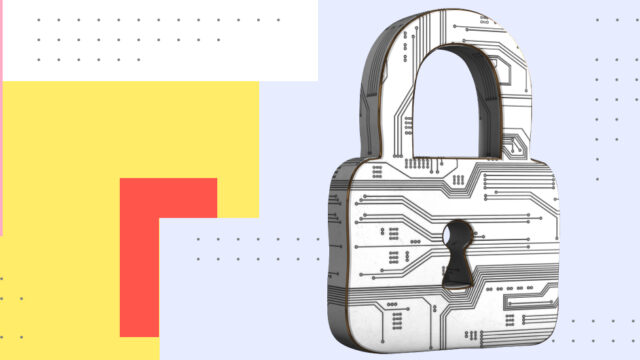
Staying Secure With a Remote Accounting and Audit Workforce
Understand and counter the security dangers that come with remote work capabilities.
The pandemic initiated a significant shift in the accounting workforce environment. The resulting lockdowns pushed firms to offer alternatives to the office-based “nine-to-five” if they wanted to retain top talent while keeping their employees safe.
Adopting flexible, work-from-home positions made it clearer than ever that this approach can foster a healthy work-life balance, increase employee satisfaction, boost productivity and reduce the reliance on physical workplaces.
Despite their many advantages, remote work situations bring security dangers as well. Telecommuting-specific risks can expose your firm, employees and clients to security breaches, data leaks and cybercrime. If you plan to update your firm’s accounting security policy to keep up with this ever-changing climate, you may wonder how to factor in work-from-home issues.
How can your company ensure the security of your staff members’ digital tools when they are working offsite?
Traditional methods of securing a remote workforce
Employees in traditional work settings complete their activities in offices or cubicles while using the company’s Wi-Fi and saving data to an onsite server. Onsite security measures such as cameras, ID badges, restricted room accesses and alarm systems keep the bad guys out and your critical data safe.
If a security concern is detected, IT specialists in a conventional workplace can physically protect electronic devices, such as desktop computers, tablets and laptops. This action prevents anyone from getting hold of the machines until workers can neutralize the threat.
While these methods can make employees feel like they are operating in safe conditions, there are some drawbacks to the traditional office environment. For instance, hiring managers must limit who they hire based on geography. This approach has the potential to significantly impact the quality of the pool of candidates for any given role.
Weather-related travel challenges, car trouble, childcare issues and burnout can all prevent workers from getting to the office, making a work-from-home solution beneficial to everyone.
New challenges for remote workers
Staff members who enjoy the freedom of executing their remote accounting work from home face specific challenges that may be problematic if not addressed. To identify the risks your employees may face, consider asking the following questions:
- Are they operating within a secure network? The benefit of remote work for many people is that they can choose where they set up their workstations. They can work from anywhere, including their home office, the local coffee shop or outdoors, as long as they have internet access. An open and unsecured network, unfortunately, can invite an issue that can compromise their data.
- Are they leaving their electronic devices unguarded? What would happen if an employee left their machine open to get another cup of coffee or use the restroom? If they did not log out of the device or the company’s systems, and a person of ill-intent gained entry, it could create a massive problem.
- Are they updating their applications promptly? Frequently, software that is not updated does not work efficiently and, in worst-case scenarios, poses security threats.
- Do they have the necessary tools for completing their accounting remote work? It is not uncommon for remote workers to not have access to the same solutions they have in the office. Unfortunately, this could present safety issues for employees who make up for their lack of tools by operating outside of standard company protocol and downloading unauthorized and potentially unsafe software tools.
The risks of inadequate remote work security
The unfortunate reality is that many people would love the opportunity to benefit from an audit and accounting firm’s lax security measures. In this digital age, cybercrime is an all-too-common occurrence that can cause catastrophic damage to yours and your clients’ businesses. The sensitive nature of the information you must safeguard can mean financial ruin if it falls into the wrong hands. Some security issues you should be aware of include:
- Phishing: Phishing occurs when a non-employee gains entry into your system. When successful, a phishing offender can obtain confidential data pertaining to financial information, login credentials, bank account numbers and more. Phishing can result in disastrous data leaks that can hurt your business, customers’ operations and your reputation.
- Poorly-secured remote work devices: An individual with no-holds-barred access to just one of your employees’ laptops can infiltrate nearly every program on the machine. Company emails, client documents, private servers, contact information and other sensitive intel can be breached and exposed in such a situation.
- Inadequate permissions procedures: Assigning your employees the appropriate permissions is essential when cultivating a safe remote working environment. Even employees with the best intentions can breach a security protocol when they have the wrong privileges within your company’s platforms.
- Improper training: An employee unaware of the correct safety procedures can cause as much, if not more, damage as an individual with criminal intentions. After logging into your company’s systems, an inexperienced worker could click on a phishing email, download malware or insert false information into outward-facing communications. Since your employees are representatives of your company, their ignorance could reflect poorly on your organization and its leadership.
- Lack of support: A staff member who doesn’t feel supported could conclude they have nobody to ask if they have a question. If they encounter a security issue and don’t know where to turn, they could follow the wrong protocol or just “wing it.”
Remote work security best practices
Here are a few ways accounting firms and audit departments can ensure security in the rapidly evolving world of remote work:
- Your employees need to know they have support in this area. Provide an easy-to-follow accounting security policy that you update regularly and with clarity. This practice will nurture a culture of confidence and transparency regarding your firm’s security.
- Timely training for all new employees on the importance of following security measures is vital. Workers must know how to identify cyber threats to prevent issues before they become insurmountable problems.
- It is also prudent to provide periodic education on new or more sophisticated data threats to ensure all your staff members know what they need to look out for.
- Ensure employees are using a secure, password-protected home Wi-Fi network, or require the use of a virtual private network (VPN).
- Provide guidance on the value of strong passwords and require that all workers, remote or otherwise, follow best practice guidelines when creating them. Require that they be changed frequently.
- Utilize a centralized, cloud-based system for storing documents, collaborating with clients and colleagues and offering automated security updates. This will help ensure timely and updated patches and other online security protection is always in force.
Team up with the right partner to ensure your safety measures go above and beyond your expectations for accounting remote work. Conduct your audits and accounting engagements securely in the cloud with Caseware Cloud.








